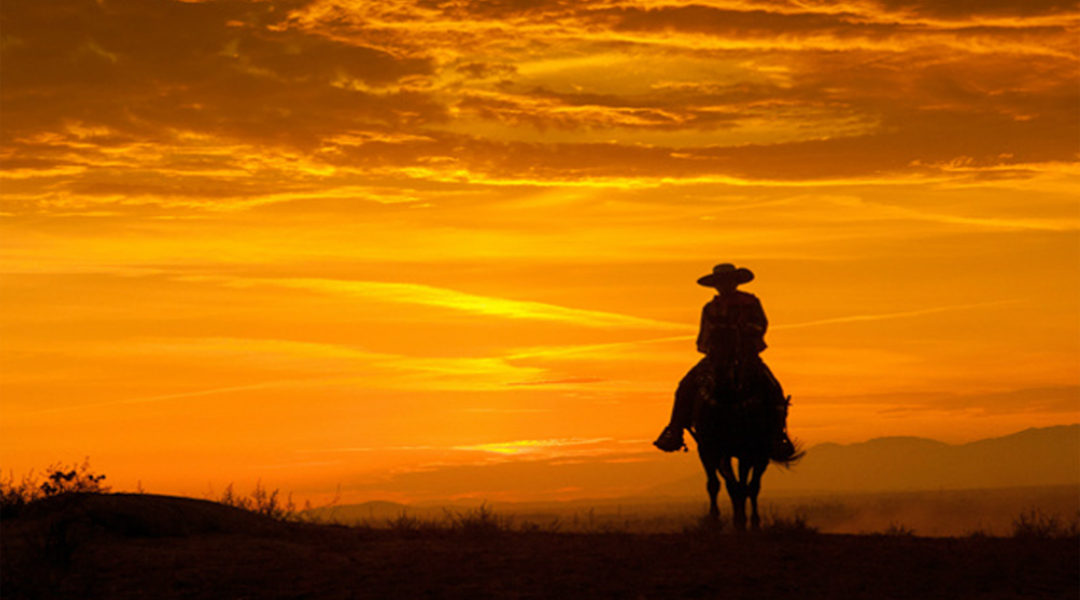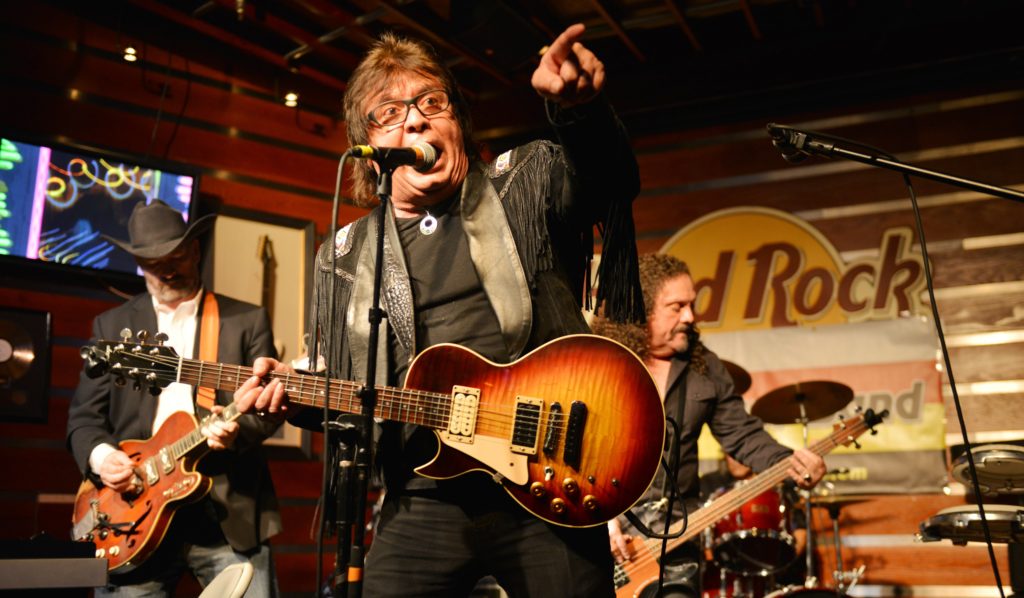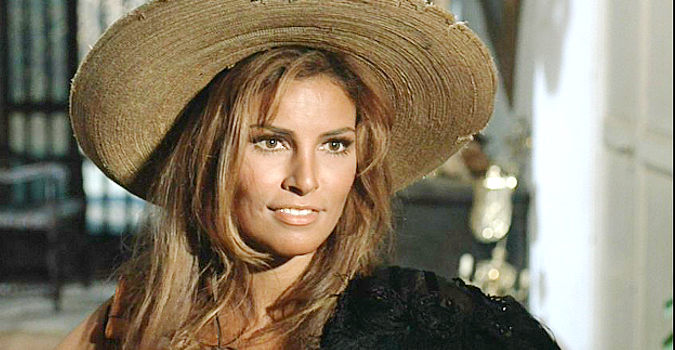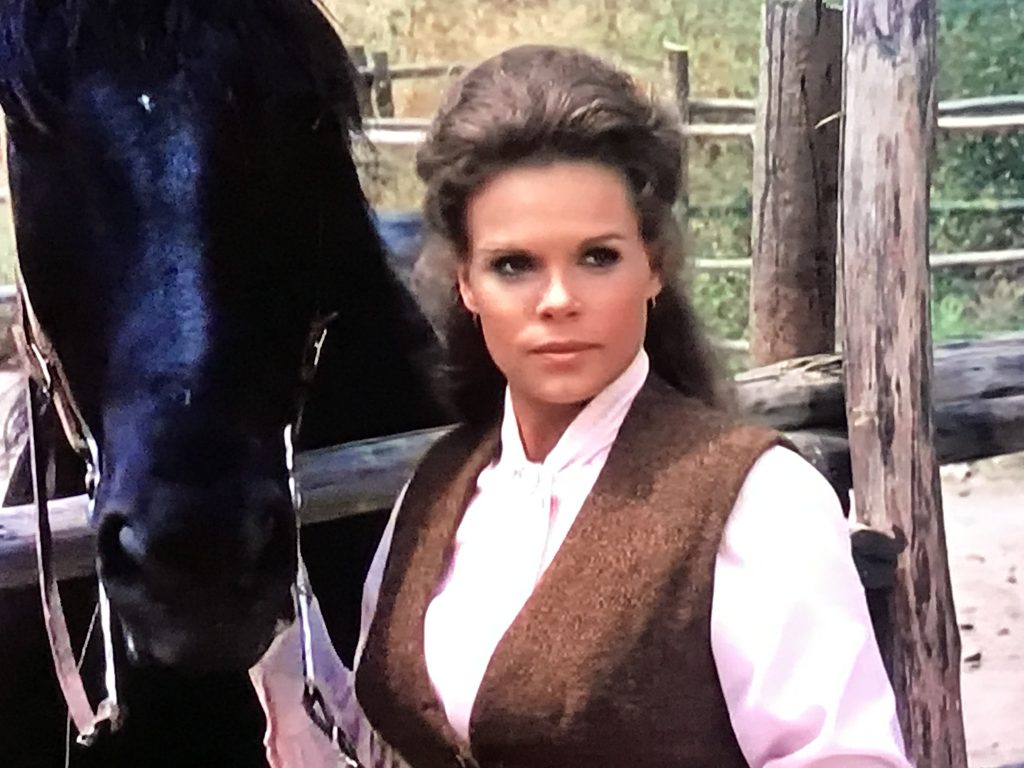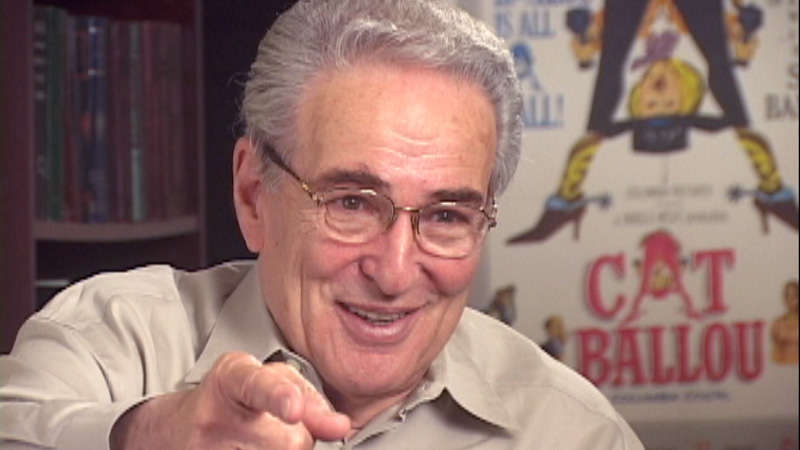We bid goodbye to some of the notables who are gone but not forgotten.
Before we rush into 2024, the C&I crew has set aside time to look back at some of those we lost during 2023.
JANUARY
LEE TIGER was a Grammy-nominated Miccosukee musician and dedicated environmentalist who helped drive the Native Rock movement of the 1960s and ‘70s. “We were musicians working nightclubs, concerts, wherever we could get work,” he told the Miami Herald in a 2006 interview. “We were American rock ‘n’ rollers who just happened to be Native Americans. Or we were Native Americans who just happened to be playing rock ‘n’ roll.” Tiger passed away Jan. 5 in Davie, Florida. He was 72.
OWEN ROIZMAN received an Oscar nomination in the Best Cinematography category for his work on the 1994 Western Wyatt Earp. Among his other notable credits as a cinematographer: The French Connection, The Exorcist, The Electric Horseman and The Return of a Man Called Horse. Roizman died Jan. 6 in Los Angeles at age 86.
FEBRUARY
BURT BACHARACH composed hundreds of chart-topping and much-recorded pop tunes — many of them with lyrics by collaborator Hal David — but likely remains best remembered by most C&I readers for the Oscar-winning “Raindrops Keep Falling on My Head,” sung by B.J. Thomas in the 1969 Western Butch Cassidy and the Sundance Kid. Bacharach was 94 when he died in Los Angeles on Feb. 8.
RAQUEL WELCH earned her spurs while riding alongside James Stewart and Dean Martin in Bandolero! (1968), and Jim Brown and Burt Reynolds in 100 Rifles (1969). In 1971, she starred as the title character in Burt Kennedy’s Hannie Caulder, playing a frontier wife who becomes a vengeful gunslinger after three outlaws (Ernest Borgnine, Jack Elam and Strother Martin) kill her husband, then rape her and leave her for dead. Welch also portrayed a fiercely independent Pikuni Blackfoot woman in the 1982 TV-movie The Legend of Walks Far Woman. Welch was 82 when she died Feb. 15 in Los Angeles.
KYLE JACOBS earned a place in pop culture history by co-writing (along with Lee Brice and Billy Montana) “More Than a Memory,” the 2007 Garth Brooks hit that was the first country song to debut at No. 1 on the Billboard Hot Country Songs chart. The Minnesota native also produced Brice’s studio albums, and wrote or co-wrote songs for such artists as Trace Adkins, Tim McGraw, Clay Walker, Scotty McCreery, Jo Dee Messina, Eli Young Band — and his wife, country music star Kellie Pickler, with whom he co-starred in the 2015 CMT reality series I Love Kellie Pickler. Jacobs died of a self-inflicted gunshot wound Feb. 17 in Nashville. He was 49.
STELLA STEVENS gave one of her finest performances as a sympathetic prostitute in love with a feisty stagecoach station operator (Jason Robards) in Sam Peckinpah’s The Ballad of Cable Hogue (1970). She also starred in the 1964 comic Western Advance to the Rear and the 1971 Spaghetti Western A Town Called Bastard. Stevens passed away Feb. 17 at age 84 in Los Angeles.
GEORGE T. MILLER — not to be confused with fellow Australian filmmaker George Miller (Mad Max: Fury Road) — earned mention in the Great Book of Westerns by directing The Man from Snowy River, the well-received 1982 drama inspired by Aussie writer Banjo Patterson’s classic 1890 poem, which starred Kirk Douglas and Jack Thompson. Miller passed away Feb. 17 in Melbourne, Victoria, Australia. He was 79.
WALTER MIRISCH formed The Mirisch Co. in 1957 with his older brothers Marvin and Harold, then signed a distribution deal with United Artists — and the rest was movie history. Among the notable Westerns to the company’s credit: The Horse Soldiers, The Magnificent Seven, The Hallelujah Trail, Hour of the Gun and The Spikes Gang. The Mirisch outfit also gave us three Best Picture Oscar-winners: West Side Story, The Apartment and In the Heat of the Night. Walter Mirisch died Feb. 24 at age 101 in Los Angeles.
MARCH
SARA LANE had a relatively short acting career, but she earned her place in the pantheon of TV Western Stars with her portrayal of orphaned frontier girl Elizabeth Grainger in 105 episodes of the enduringly popular series The Virginian. According to The Hollywood Reporter, Lane — daughter of actors Rusty Lane and Sara Anderson — landed her role on the groundbreaking 90-minute series partly because she was already skilled at riding horses. “I didn’t want to act,” she told an interviewer in 1966, “but I needed money for making clothes, making jewelry, and raising quarter horses.” After her retirement from show business in 1977, Lane and her husband Jon Scott co-founded the Havens Winery in Napa Valley. She passed away March 3 in Napa, California at age 73.
GORDON T. DAWSON wore many hats during his decades-long showbiz career, earning credits ranging from wardrobe supervisor to scriptwriter to executive producer. He started his association with the legendary Sam Peckinpah while “aging” soldier uniforms for the 1965 Western Major Dundee, and went on to collaborate with Peckinpah in various capacities — including writer, line producer and second unit director — for The Wild Bunch, The Ballad of Cable Hogue, Pat Garrett & Billy the Kid, The Getaway and Bring Me the Head of Alfredo Garcia. For television, he wrote several episodes of Cowboy in Africa (1967-68) and Bret Maverick (1981-82), the popular supernatural Western TV-movie Purgatory (1999) — and 32 episodes of Walker Texas Ranger, the 1993-2001 Chuck Norris series on which he served as supervising producer and co-executive producer. For these and other achievements, Dawson was awarded the Western Writers of America Silver Spur award and the Cowboy Hall of Fame’s Western Heritage Wrangler award. He was 84 when he died March 6 in West Hills, California.
LISA MONTELL — born Irena Ludmilla Vladimiovna Augustinovich in Warsaw, Poland before her family fled Nazi invaders — appeared in several series during the Golden Age of TV Westerns, including The Gene Autry Show, Broken Arrow, Tales of Wells Fargo, Colt .45, Have Gun — Will Travel, Sugarfoot, Cheyenne, Bat Masterson, and Maverick. On the big screen, she co-starred with Chuck Connors and John Smith in Tomahawk Trail (1957), and Clayton Moore and Jay Silverheels in The Lone Ranger and the Lost City of Gold (1958), before she left acting in the 1960s to devote her time to social activism and spiritual pursuits. Montell passed away March 7 in Van Nuys, California at age 89.
JOHN JAKES enjoyed enormous success as a best-selling author of historical fiction. His North and South trilogy — North and South (1982), Love and War (1984) and Heaven and Hell (1987) — detailed the relationship between two families divided by opposing loyalties during and after the Civil War, and inspired three highly rated TV miniseries that showcased such stars as Patrick Swayze, James Read, Kirstie Alley, Hal Holbrook, Olivia de Havilland and Johnny Cash. Three books in Jakes’ Kent Family Chronicles, novels tied to the American Revolution and its aftermath, also were adapted into syndicated miniseries: The Bastard (1978), The Rebels (1979) and The Seekers (1979). Jakes died March 11 at age 90 in Sarasota, Florida.
SHARON ACKER, arguably best known for her portrayal of Lee Marvin’s treacherous wife in Point Blank (1967), appeared as a guest star on several series during the Golden Age of TV Westerns, Including The Wild Wild West, Lancer, Alias Smith and Jones, Gunsmoke and Hec Ramsey. The Canadian-born actress also co-starred as Perry Mason’s faithful secretary Della Street in the 1973-74 series reboot The New Adventures of Perry Mason. Acker was 87 when she passed away March 16 in Toronto.
RAY PILLOW scored his biggest hit in 1966 with “I’ll Take the Dog,” the title track and first single from his album with fellow country artist Jean Shepard. The Virginia-born singer-songwriter landed 18 singles on the Billboard Country Chart, and was inducted into the Grand Ole Opry, before co-founding Sycamore Records in 1981, then becoming an A&R executive for Capitol Records in the 1990s. He continued to perform at the Opry until his retirement in 2018. Pillow was 85 when he passed away March 26 in Nashville.
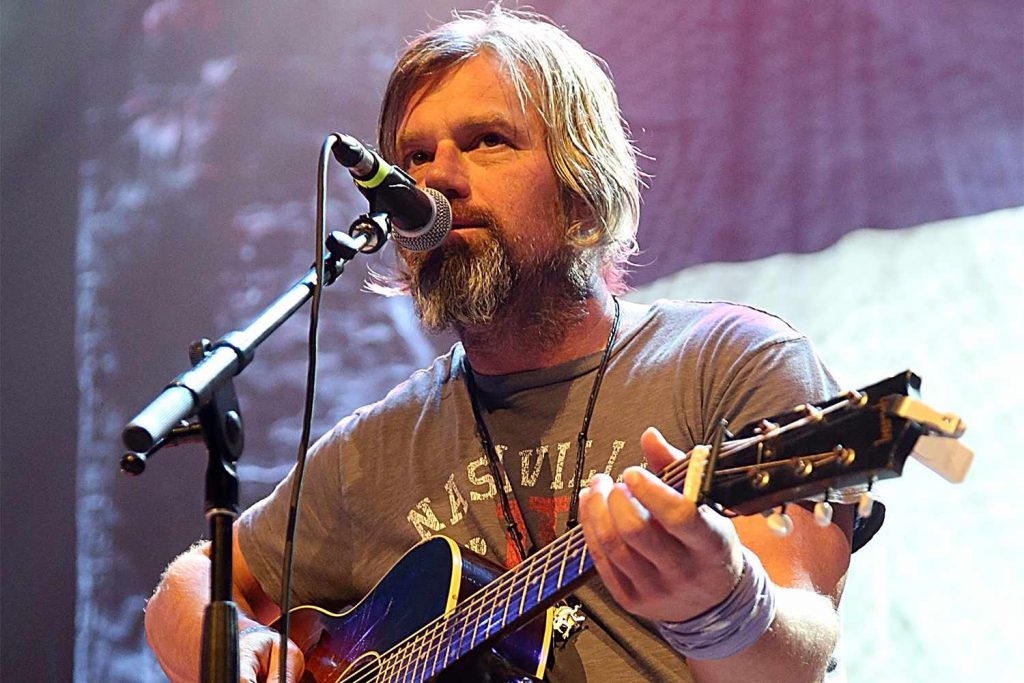
APRIL
KEITH GATTIS made his mark as a multitasker in the world of country music, earning praise and respect for his work as performer, songwriter, guitarist and producer. Among his major credits: Session work as a composer and guitarist on George Jones’ 1998 and 1999 albums It Don’t Get Any Better Than This and The Cold Hard Truth; writing or co-writing songs recorded by Kenny Chesney (“El Cerrito Place,” “When I See This Bar”), George Strait (“Let It Go,” “I Got a Car,” “Goin’ Goin’ Gone”), Randy Hauser (“What Whiskey Does”) and many others; producing Hauser’s acclaimed 2019 album Magnolia; serving as band leader for Dwight Yoakam, and playing bass and electric guitar on Yoakam’s album Blame The Vain. Gattis died April 23 as the result of a tractor accident at his Nashville area home. He was 52.
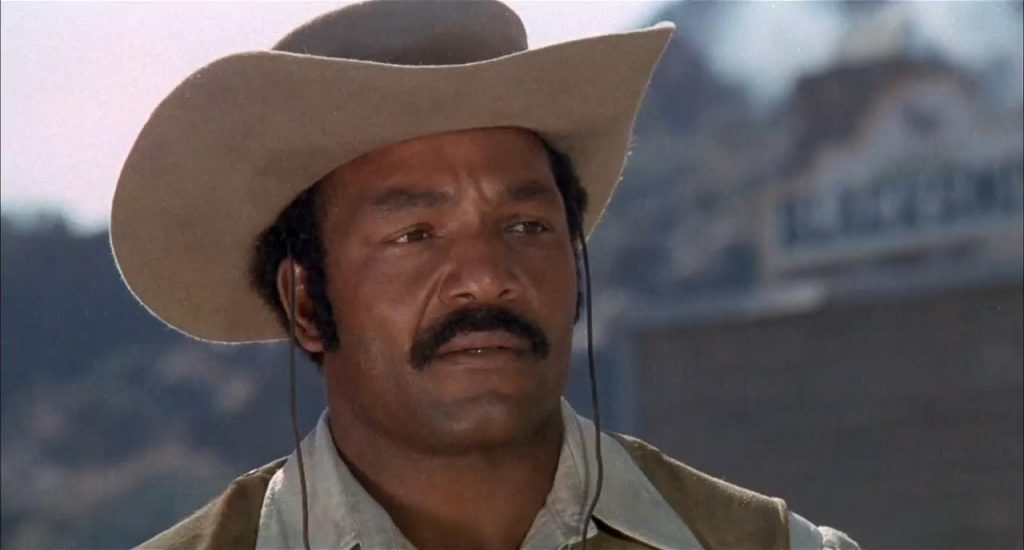
MAY
GORDON LIGHTFOOT began his career on the Toronto folk circuit in the mid-1960s before achieving international success with such hits as “Sundown,” “If You Could Read My Mind,” “Carefree Highway,” “Rainy Day People” and “The Wreck of the Edmund Fitzgerald.” Often hailed as Canada’s greatest songwriter, his folk, folk-rock and country songs were cited as major influences by many admiring contemporaries — including Bob Dylan, who once told an interviewer: “I can’t think of any Gordon Lightfoot song I don’t like. Every time I hear a song of his, it’s like I wish it would last forever.” Lightfoot was 84 when he passed away May 1 in Toronto.
LARRY MAHAN, the eight-time world rodeo champion once dubbed “rodeo’s first matinee idol,” was a flamboyant figure who achieved fame and fortune in bull riding, saddle bronc riding, and bareback riding events, and later as a successful western wear entrepreneur. During the 1970s, the New York Times reported, “He climbed onto bulls and broncs wearing shoulder-brushing locks, as well as silk shirts and chaps in a rainbow of colors. Away from the arena, he carried himself like the star he was — tooling around in a Jaguar, traversing the country in his twin-engine Cessna, appearing as Johnny Carson’s guest on The Tonight Show. Some likened him to Elvis Presley.” He was a subject of the Oscar-winning 1973 documentary The Great American Cowboy, and played supporting roles in such movies as The Honkers (1972), a rodeo drama starring James Coburn and Slim Pickens, and Mackintosh and T.J. (1975), the last feature film starring Roy Rogers. “Football had Joe Namath, boxing had Muhammad Ali, and rodeo had Larry Mahan,” Bobby Steiner, a friend and fellow National Rodeo Hall of Fame member, told the New York Times. “I don’t know that anybody will ever know what ‘it’ is, but he had ‘it.’” Mahan passed away May 7 at his home in Valley View, Texas. He was 79.
JOE GAYTON, along with his brother and fellow writer-producer Tony Gayton, was co-creator and executive producer of Hell on Wheels, the acclaimed 2011-16 series starring Anson Mount as Cullen Bohannon, a Confederate Army veteran who becomes involved with construction of the Transcontinental Railroad. “Remember,” Gayton told C&I in 2011, “this all takes place during the aftermath of the Civil War. And you have all these different characters thrown together, working together, building the railroad. In some ways it’s like, a hundred years after the founding of America, we have the re-founding of this country.” Gayton died May 14 after a lengthy battle with prostate cancer. He was 66.
SHARON FARRELL, an actress who appeared opposite such notables as Steve McQueen (The Reivers), James Garner (Marlowe) and Chuck Norris (Lone Wolf McQuade), also guest-starred in episodes of Wagon Train, Gunsmoke, Rawhide, The Virginian and other series during the Golden Age of TV Westerns. She passed away May 15 in Orange County, California at age 82.
JIM BROWN, widely acclaimed as one of the greatest players in NFL history, surprised many when, at the height of his gridiron glory in mid-1966, he left football to pursue an acting career. He had already made his film debut in the 1964 Western Rio Conchos, playing a Buffalo Soldier sergeant opposite Richard Boone, Stuart Whitman and Tony Franciosa, and announced his retirement from the Cleveland Browns during the production of his second film, The Dirty Dozen (1967). Other films on his resume include the Westerns 100 Rifles (1969), co-starring Raquel Welch and Burt Reynolds; El Condor (1970), co-starring Lee Van Cleef and Iron Eyes Cody; and Take a Hard Ride (1975), also co-starring Van Cleef and featuring another former footballer, Fred Williamson. Brown was 87 when he died May 18 in Los Angeles.
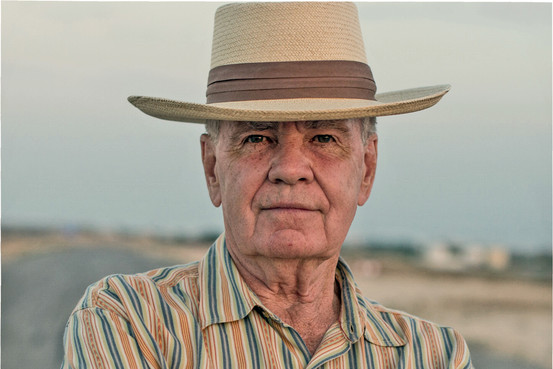
JUNE
CORMAC McCARTHY, the Rhode Island-born, Tennessee-reared novelist famed for his dark view of the human condition, earned a National Book Award for his first best-seller, All the Pretty Horses (1992), the first in a “Border Trilogy” that also included The Crossing (1994) and Cities of the Plain (1998), and received a Pulitzer Prize for The Road (2006), his bleak account of a father’s desperate efforts to protect his son in a post-apocalyptic world. His No Country for Old Men (2005) was adapted by Joel and Ethan Coen into an Oscar-winning 2007 film starring Tommy Lee Jones, Josh Brolin and Javier Bardem. McCarthy died June 13 in Santa Fe, New Mexico at age 89.
FREDERIC FORREST made an indelible impact as the fearsome Blue Duck in Lonesome Dove, the epic 1989 miniseries based on Larry McMurtry’s Pulitzer Prize-winning novel. A native of Waxahachie, Texas, he made his movie breakthrough playing a Ute Indian rodeo competitor in When the Legends Die (1972), for which he received a Golden Globe nomination as Most Promising Newcomer. He also received Oscar and Golden Globe nominations for his performance as an AWOL soldier who falls in love with a self-destructive rock singer (Bette Midler) in The Rose (1979), and earned admiring reviews for his portrayal of a high-strung solider in Apocalypse Now (1979). His other film credits include The Missouri Breaks, Hammett (in which he played novelist Dashiell Hammett), One from the Heart and The Two Jakes. Forrest was 86 when he died June 23 in Santa Monica, California.
DEAN SMITH earned a gold medal as a sprinter at the 1952 Helsinki Olympics before launching his career as a stunt performer, often working with John Wayne, Paul Newman, Dale Robertson, Robert Redford and other luminaries in such films and TV series as Tales of Wells Fargo, Butch Cassidy and the Sundance Kid, Jeremiah Johnson, Rio Bravo, True Grit and Little Big Man. A member of the Hollywood Stuntmen’s Hall of Fame and the Texas Rodeo Cowboy Hall of Fame, Smith published a memoir titled Cowboy Stuntman: From Olympic Gold to the Silver Screen in 2013. He was 91 when he passed away June 24 at his home in Breckenridge, Texas.
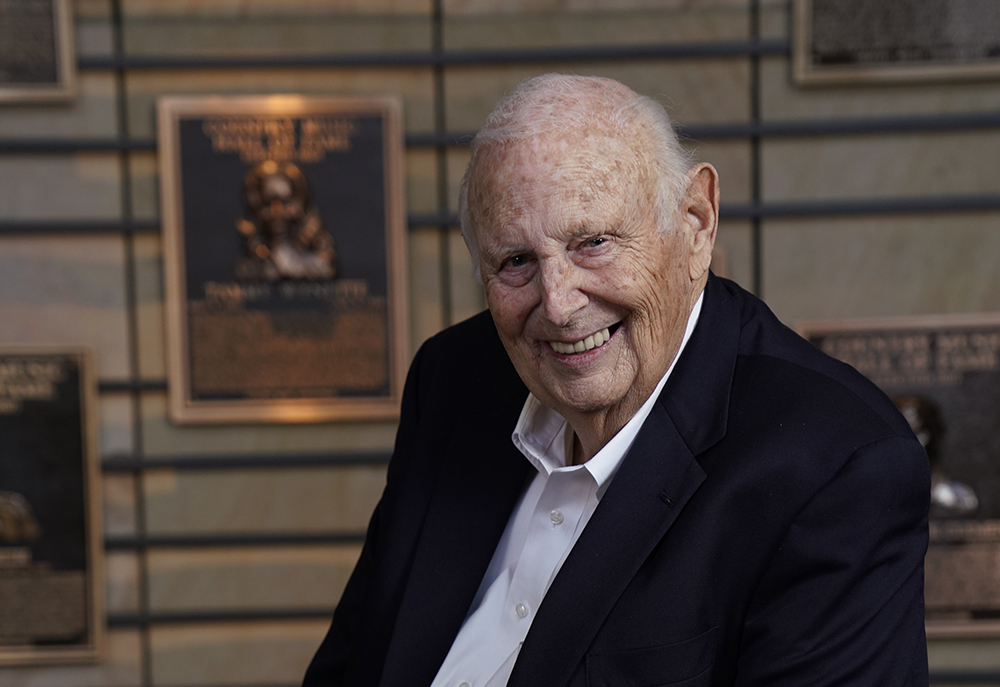
JULY
JERRY BRADLEY played a major role in reshaping the sound of country music in the 1970s when, as head of the Nashville division of RCA Records, he helped bring the then-nascent “outlaw” movement into the mainstream with Wanted! The Outlaws, the groundbreaking 1976 compilation album that showcased music by Willie Nelson, Waylon Jennings, Tompall Glaser and Jessi Colter — and went on to become first million-selling album in the history of country music. During his nine years at RCA, he signed such future stars as Eddie Rabbitt, Ronnie Milsap and the band Alabama, and supervised the making of Dolly Parton’s first million-selling album, Here You Come Again. After his retirement in 2002, he played a major role in the development of the annual CMA Music Festival in Nashville, and was inducted into the Country Music Hall of Fame in 2019. Bradley was 83 when he died July 17 in Mount Juliet, Tenn.
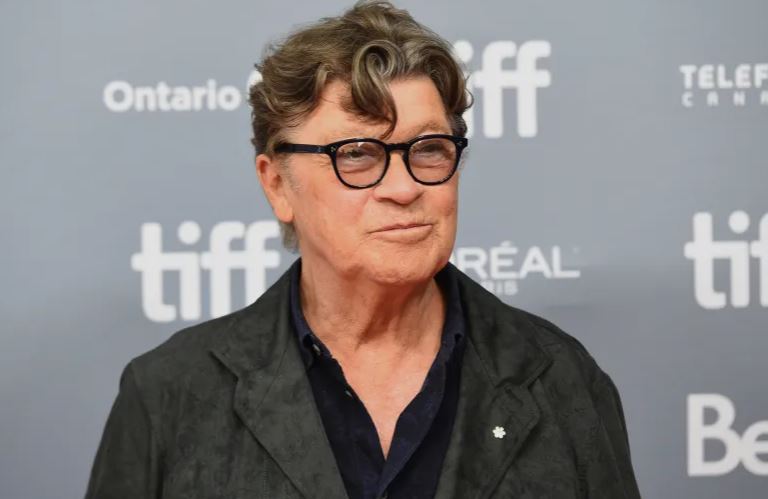
AUGUST
ROBBIE ROBERTSON, whose mother was a Mohawk raised on Canada’s Six Nations Reserve, gained international recognition as a founding member of The Band, a solo singer-songwriter, and a composer of soundtracks for filmmaker Martin Scorsese. (His final collaboration with Scorsese: Killers of the Flower Moon.) During an interview for the 2017 documentary Rumble: The Indians Who Rocked the World, he vividly recalled being warned during his youth by other Mohawks to downplay his heritage: “Be proud you’re an Indian, but be careful who you tell.” Eventually, however, he was pleased and proud to share his heritage with the world in his music. Robertson was 80 when he died Aug. 9 in Los Angeles.
ADA DEER was born in 1935 on the Menominee reservation in Keshena, Wisconsin, and established herself as a trailblazing advocate for tribal sovereignty in the 1970s by playing a key role in reversing Termination Era policies dating back to the 1950s that took away the Menominee People’s federal tribal recognition. In 1993, she became the first woman to lead the Bureau of Indian Affairs, serving four years under President Bill Clinton while working to strengthen federal protections and rights for hundreds of tribes. Deer died Aug. 15 in Fitchburg, Wisconsin at age 88.
DAVID JACOBS ensured for himself a footnote in television history for creating Dallas, the phenomenally popular 1978-1991 prime-time soap opera that showcased Fort Worth native Larry Hagman in his iconic role as J.R. Ewing, a deceptively charming yet unabashedly amoral oil man whose wheeling and dealing often caused grief for his extended family — and whose near-death experience triggered record ratings for the fabled “Who Shot J.R.?” cliffhanger episodes. Jacobs also created Knots Landing, the 1979-93 Dallas spinoff, and Paradise, the 1988-91 Western series (later renamed Guns of Paradise) starring Lee Horsley as a notorious gunfighter who accepts responsibility for the four young children of his late sister. The Maryland-born writer-producer-director was 84 when he died Aug. 20 in Burbank, California.
HERSHA PARADY broke the hearts of many Little House on the Prairie fans when her character, Walnut Grove teacher Alice Garvey, died in a 1980 episode while trying to save children from a fire at her school. The Ohio-born actress was 78 when she passed away Aug. 23 in Norfolk, Virginia.
BOB BARKER, long-time host of The Price is Right and dedicated animal-rights activist, often spoke proudly of his Native American heritage — he was one-eighth Sioux on his father’s side, and a registered member of the Rosebud Sioux Tribe. “I’ve always bragged about being part Indian,” he told the Argus-Leader newspaper of Sioux Falls, S.D. in 1962, “because they are a people to be proud of. And the Sioux were the greatest warriors of them all. They’ve been called the greatest light cavalry in the history of man.” Barker was 99 when he died Aug. 26 in Los Angeles.
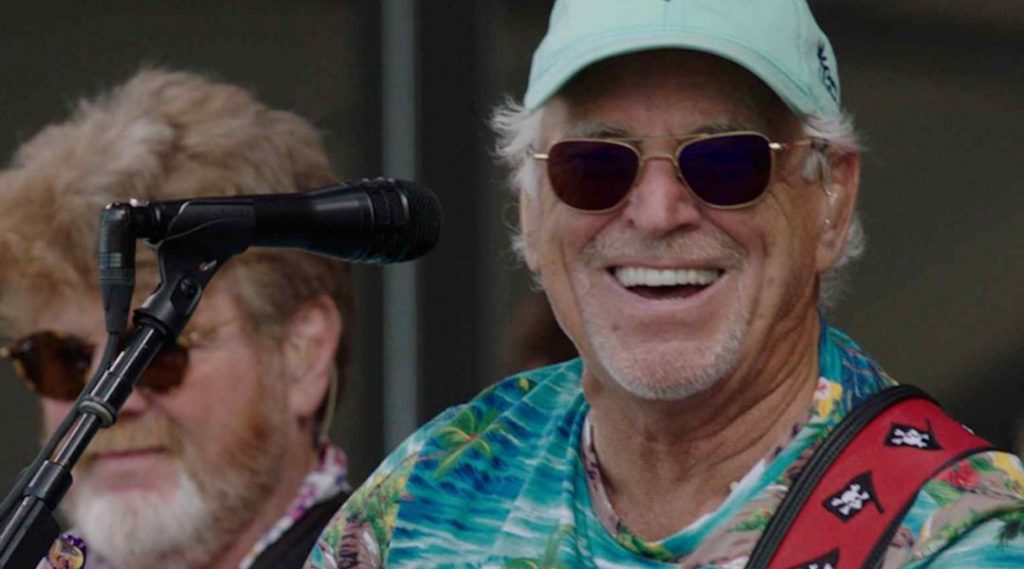
SEPTEMBER
JIMMY BUFFETT began his musical career as a country artist — and a Nashville-based correspondent for Billboard — before developing a trademark sound described by New York Times writer Bill Friskics-Warren as a “fusion of laid-back twang and island-themed lyrics.” He earned the respect and admiration of fellow artists as diverse as Blake Shelton and Paul McCartney, and attracted legions of loyal fans known affectionately as Parrotheads, with such perennially popular songs as “Margaritaville,” “Cheeseburger in Paradise” and “Son of a Son of a Sailor.” Buffett passed away Sept. 1 at his home in Sag Harbor, New York. He was 76.
CHARLIE ROBISON distinguished himself as a singer-songwriter with such Texas country classics as “My Hometown” and “El Cerrito Place,” and continued to be a major influence on other artists after complications from a 2018 surgery left him unable to sing. Singer-songwriter Kevin Fowler, a fellow Texan, noted to The Washington Post that Robison “paved the road” for two generations of Texas country musicians, including contemporaries such as Pat Green, Jack Ingram and Cory Morrow, and younger artists like Parker McCollum, Cody Johnson and Cody Jinks. Robison died Sept. 10 in San Antonio at age 59.
MICHAEL GAMBON amassed scores of stage, screen and television credits during his decades-long acting career, though he arguably remains most famous for portraying Albus Dumbledore, the firm but fair-minded headmaster of the Hogwarts wizarding school, in the Harry Potter movie franchise. C&I readers also will recognize him for his menacing performances as Denton Baxter, the tyrannical town boss who makes life difficult for cattle drivers Robert Duvall and Kevin Costner in Costner’s Open Range (2003), and Michael “Mike” Smythe, the short-tempered brute who vies with Dustin Hoffman for control of a California racetrack in the 2011-12 HBO series Luck. The Irish-born actor passed away Sept. 27 in Witham, Essex, England. He was 82.
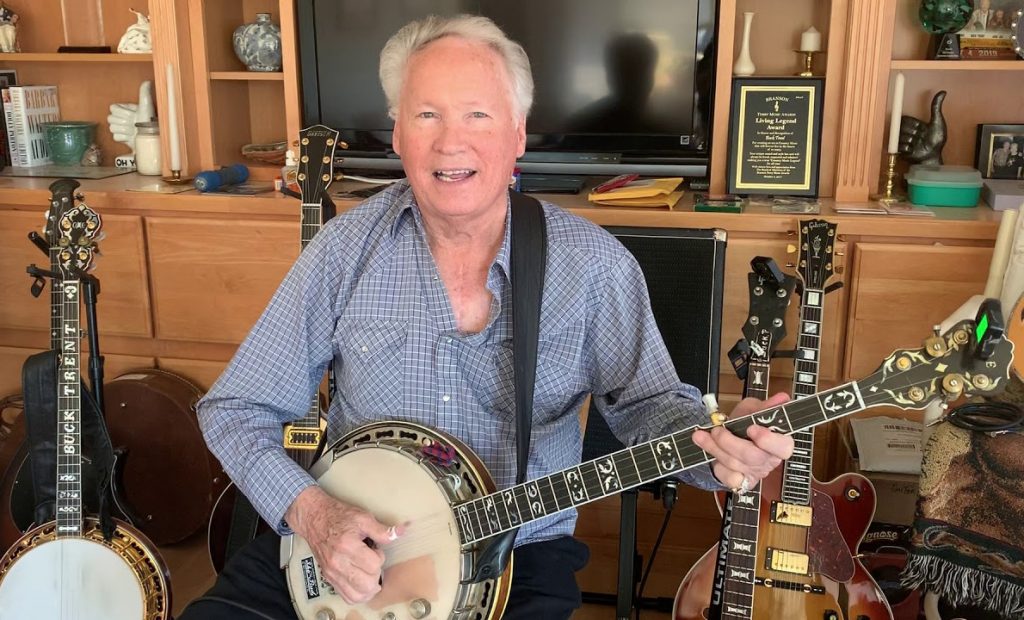
OCTOBER
KEITH JEFFERSON listed several stage and screen credits on his resume, but he likely is most familiar to C&I readers for his roles in two Westerns directed by Quentin Tarantino: Pudgy Ralph in Django Unchained (2012), and Charly in The Hateful Eight (2015). He also appeared opposite Danny Glover and Timothy Busfield in the 1997 made-for-cable historical drama Buffalo Soldiers. Jefferson died Oct. 5 in Los Angeles at age 53.
BUCK TRENT, inventor of the electric banjo, was a widely admired country music instrumentalist whose exceptional guitar and banjo licks can be heard on Dolly Parton’s original recordings of “Jolene” and “I Will Always Love You,” and albums by Parton and such other stars as Porter Wagoner, Nancy Sinatra, Marty Stuart and Roy Clark. He and Clark were among the mainstays of the long-running comedy-variety series Hee-Haw, where Trent frequently punctuated his appearance by shouting his trademark phrase “Oh, yeah!” He also recorded well-received solo albums, and was a regular on The Porter Wagoner Show and The Marty Stuart Show. Trent was 85 when he died Oct. 9 in Branson, Missouri.
MARK GODDARD, who portrayed played U.S. Space Corps Major Donald West in the popular 1965-68 TV series Lost in Space, also appeared as a guest star in such classic TV Westerns as Johnny Ringo, The Rebel, Zane Grey Theatre, The Rifleman, The Virginian and Gunsmoke. He died Oct. 10 at age 87 in Hingham, Massachusetts.
PHYLLIS COATES played reporter Lois Lane in Superman and the Mole Men (1951), the first theatrical feature based on a DC Comics character, and the first season of the TV series Adventures of Superman. She co-starred in several big-screen Westerns, including Outlaws of Texas (1950), Gunfighters of the Northwest (1954), Cattle Empire (1958), and no fewer than six 1951 releases: Man from Sonora, Canyon Raiders, Nevada Badmen, Oklahoma Justice, The Longhorn, and Stage to Blue River. She also guested on Black Saddle, Tales of Wells Fargo, The Lone Ranger, Rawhide, Gunsmoke, Death Valley Days, and The Virginian, among other TV Westerns. Coates passed away Oct. 11 in Los Angeles. She was 96.
PIPER LAURIE earned three Oscar nominations over the course of her decades-long career, for her supporting performances in The Hustler (1961), Carrie (1976), and Children of a Lesser God (1986). She also earned her spurs while appearing opposite Tyrone Power in The Mississippi Gambler (1953), Rory Calhoun in Dawn at Socorro (1954), and Dana Andrews in Smoke Signal (1955), and received Emmy and Golden Globe nominations for her work in the 1983 miniseries The Thorn Birds. Laurie passed away Oct. 14 in Los Angeles at age 91.
RICHARD ROUNDTREE instantly acquired icon status by playing street-smart, ultra-cool private eye John Shaft in Shaft (1971), then followed up with Shaft’s Big Score! (1972), Shaft in Africa (1973), and a 1973-74 TV series spinoff. (He later played an older version of the character as a mentor in 2000 and 2019 reboots.) He also made his mark in the 1973 Western Charlie One-Eye, the original 1977 miniseries Roots, the 1986-87 sci-fi/Western TV series Outlaws, a memorable 1991 episode of The Young Riders, and two TV movies inspired by the long-running Bonanza series: Bonanza: The Return (1993) and Bonanza: Under Attack (1995). Roundtree died Oct. 24 at age 81 in Los Angeles.
NOVEMBER
ELLIOT SILVERSTEIN graduated from television to movies when he made his feature film directorial debut with Cat Ballou (1965), the hilarious Western spoof that showcased Lee Marvin in his Oscar-winning performance as Kid Shelleen, a hard-drinking gunslinger who sobers up long enough to help a rancher’s daughter (Jane Fonda) avenge her father’s murder. (Marvin also played the killer, Tim Strawn, Shelleen’s tin-nosed outlaw brother.) Five years later, Silverstein took a rather more serious approach to the genre in A Man Called Horse, a period drama starring Richard Harris as a visiting English nobleman who is captured and abused but ultimately accepted by the Sioux people. On Nov. 24, Silverstein died at age 96 in Los Angeles.
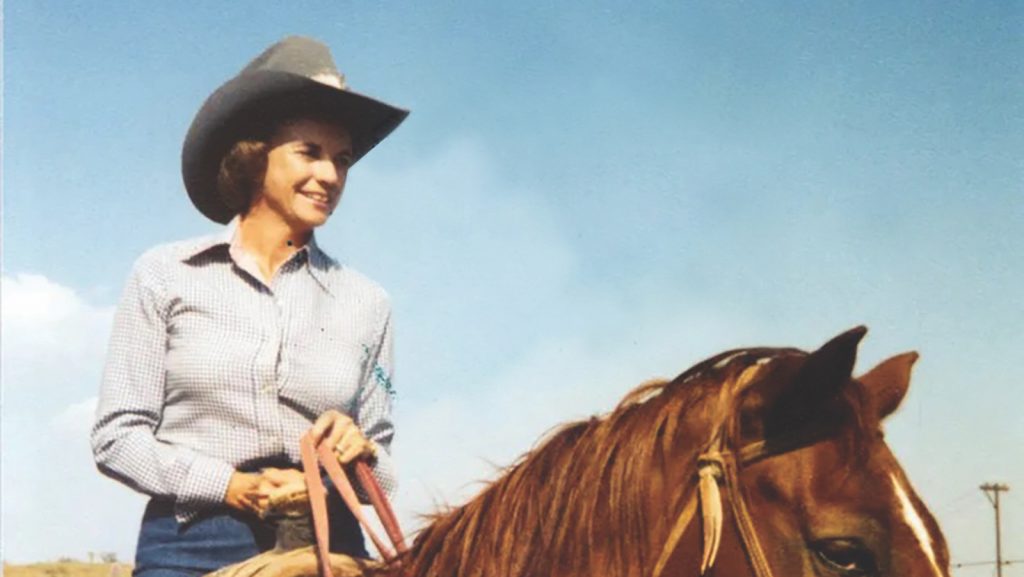
DECEMBER
SANDRA DAY O’CONNOR, the first woman appointed to the Supreme Court, grew up on the Lazy B Ranch outside Duncan, Arizona, and was such a skilled horsewoman that she actually competed in professional rodeos before launching her legal career. Even after she rose to the highest court in the land, she continued to enjoy her time on horseback, and often laced her comments about friends and peers with allusions to equine skills. “The really expert riders of horses let the horse know immediately who is in control,” she once told an interviewer. “But then they guide the horse with loose reins and very seldom use the spurs. So it was with [Chief Justice William Rehnquist]. He guided us with loose reins and used the spurs only rarely to get us up to speed with our work.” In 2002, O’Connor was inducted into the National Cowgirl Museum and Hall of Fame in Fort Worth, where she proudly referred to herself during the induction ceremony as “the first cowgirl to serve on the U.S. Supreme Court.” O’Connor died in Phoenix on Dec. 1. She was 93.
NORMAN LEAR influenced many other TV producers and entertained millions of viewers with such groundbreaking sitcoms as All in the Family, One Day at a Time, The Jeffersons, Sanford and Son, Good Times and Maude. Early in his career, he earned his spurs with the very first series for which he was credited as creator or executive producer: The Deputy (1959-61), a half-hour Western starring Henry Fonda as Chief Marshal Simon Fry of the Arizona Territory, and Allen Case as Deputy Clay McCord. Lear was 101 when he died on Dec. 5 in Los Angeles.
RYAN O’NEAL guested on classic TV Westerns — including Laramie, The Virginian, and Wagon Train — and played a continuing role in the 1962-63 modern-day ranching drama Empire before starring in such notable movies as Love Story, Paper Moon, Barry Lyndon, and What’s Up, Doc? In 1971, he and William Holden portrayed Wild West cowboys who make an ill-advised stab at bank robbery in writer-director Blake Edwards’ Wild Rovers. O’Neal passed away at age 82 on Dec. 8 in Santa Monica, California.
LAURA LYNCH was a founding member of the country group The Dixie Chicks — now known as The Chicks — along with Robin Lynn Macy and two sisters, Emily Strayer and Martie Maguire. Before leaving the band in 1995, she played bass and sang on three of their albums — “Thank Heavens for Dale Evans” (1990), “Little Ol’ Cowgirl” (1992) and “Shouldn’t a Told You That” (1993) — and performed at the 1993 inaugural ball for Bill Clinton. Lynch died near Cornudas, Texas in an auto accident on Dec. 23.
TOM WILKINSON, the formidably talented and impressively versatile British actor who was a two-time Oscar nominee, for In the Bedroom (2001) and Michael Clayton (2007), also was a standout supporting player in Ang Lee’s 1999 Civil War drama Ride with the Devil and Gore Verbinski’s 2013 reboot of The Lone Ranger. Chief among his many other credits: Rush Hour (1998), The Patriot (2000), Eternal Sunshine of the Spotless Mind (2004), Batman Begins (2005), Valkyrie (2008), Mission Impossible — Ghost Protocol (2011), The Grand Budapest Hotel (2014) and (as President Lyndon B. Johnson) Selma (also 2014). Wilkinson was 75 when he passed away Dec. 30.






